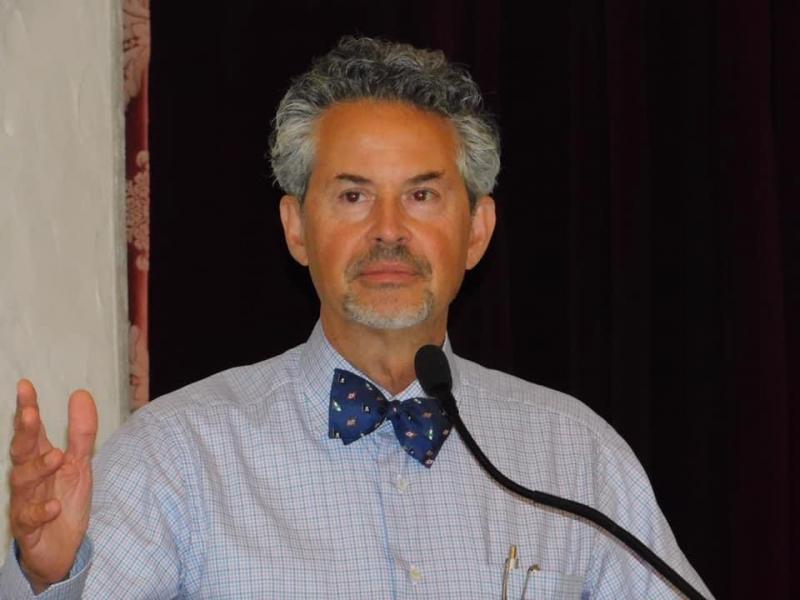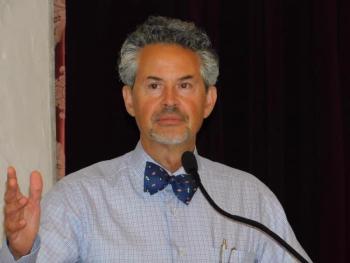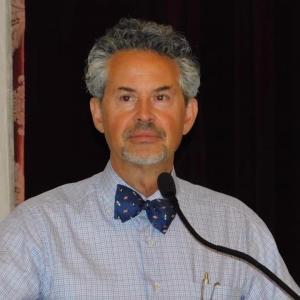How does this keep happening?
As were most people in this world, I was overcome with disbelief and shock on May 25 when I saw another black man had been killed in in our country by some type of enforcement activity.
“How does this keep happening? Did they not know they were killing a person? Did they not know they were killing another black man?” I thought to myself.
It was appalling and wrong in so many ways on so many levels and this violence contributes to the distrust of law enforcement and to distrust in the larger structure of government, including our critically important public health infrastructure.
There are bad “actors” in all professions, including my own, and — other than their victims and potential victims — the people most adversely affected are their well-intentioned and well-behaved colleagues. In a similar way, the legitimate demonstrators and protesters have suffered major damage to their cause and efforts by a small number of rioters taking advantage of this crisis-on-crisis to inflict violence and damage and turn peaceful demonstrations into dangerous riots.
I believe we are witnessing the intersection of two very bad problems: the misconduct and brutality of a few police officers and the racism that is systemic in our society. Violence inflicted by police (and others) in recent headlines must be dealt with in the criminal justice system but racism must be addressed by all of us, whether we think we embody any of it or not.
And for those of us who feel our thoughts and actions are not influenced by racism, we should know we are subject to implicit bias or “social cognition,” referring to the attitudes or stereotypes that unconsciously affect our understanding, actions, and decisions.
These biases encompass both favorable and unfavorable assessments and are activated without an individual’s awareness or intentional control.
We do have a legacy of racism in this country — a system that historically and systemically unfairly advantages some and disadvantages others based on their skin color or belonging to ethnic, religious and other minority groups.
And racism is detrimental to health in all its forms.
The recent deaths of Breonna Taylor, a black EMT in Louisville shot and killed in her own home by police due to mistaken identity; George Floyd, a black man in Minneapolis killed at the hands of law enforcement; and Ahmaud Arbery killed by vigilantes while jogging — an activity encouraged by the medical profession — highlight how the deck is stacked against people of color.
The trauma of violence in any person’s life course — directly and indirectly — is associated with chronic stress, higher rates of comorbidities and lower life expectancy, all of which bear extensive care and economic burden on affected families, our healthcare system and communities.
People aren’t born racist. I remember when my kids were growing up in Newport, Rhode Island, they didn’t seem to notice anything different about their black friends and nothing seemed remarkable when my daughters dated black men.
I even allowed myself to think, “This is great but they’re going to be shocked to learn in their history classes what things were like before.”
Then we elected President Obama and I thought, “Wow!, now it’s really a new day!”
As he conceded the election, Senator John McCain recognized that extraordinary moment by saying: “This is a historic election, and I recognize the special significance it has for African Americans and for the special pride that must be theirs tonight. I’ve always believed that America offers opportunities to all who have the industry and will to seize it. Senator Obama believes that, too. But we both recognize that though we have come a long way from the old injustices that once stained our nation’s reputation and denied some Americans the full blessings of American citizenship, the memory of them still had the power to wound.
“A century ago, President Theodore Roosevelt’s invitation of Booker T. Washington to visit — to dine at the White House — was taken as an outrage in many quarters. America today is a world away from the cruel and prideful bigotry of that time. There is no better evidence of this than the election of an African American to the presidency of the United States. Let there be no reason now for any American to fail to cherish their citizenship in this, the greatest nation on Earth.”
Sadly, even after such a major milestone, racism persists and seems only to have become even uglier — if that’s possible — almost 60 years after the Civil Rights Movement began, more than 150 years after the end of the Civil War.
Racism is in every system: politics, education, banking, public safety and health care to name a few. Political racism starts with voter suppression which is still very much alive today and even practiced out in the open in some areas. We must not tolerate it.
According to the American Medical Association (AMA), “It is widely understood in medicine and public health that structural racism manifests in differential access by race to opportunities, resources, conditions, and power within their respective systems”. Years of health outcomes data show higher maternal and infant mortality rates among black women, even with college education. Chronic racism has significant health effects and now the COVID-19 pandemic has exposed critical weaknesses and gaps in our health care “system”, including — very prominently — racial disparities.
In a strange twist, when the opioid crisis began to escalate some 20 years ago, many African-Americans had a serendipitous layer of protection. But that protection didn’t come from the effectiveness of the American medical system. Instead, researchers believe, it came from implicit bias and racial stereotypes embedded within that system. African-Americans received fewer opioid prescriptions and some researchers think it is because doctors believed (contrary to fact) that black people 1) were more likely to become addicted 2) would be more likely to sell the drugs and 3) had a higher pain threshold than white people.
The A.M.A. says the ultimate defense against police violence in times of public health crisis, and beyond, is centering equity and ensuring accountability as a public health measure and urges the following actions:
• clinics, hospital and healthcare providers should review and reconsider their policies and relationships with law enforcement that may increase harm to patients and patient communities.
• the Centers for Disease Control and Prevention (CDC) and the National Academies of Sciences, Engineering, and Medicine and other such parties should study the public health effects of physical and oral violence between law enforcement officers and public citizens, particularly within racially marginalized communities.
• advocate for uniform training, transparency in reporting and accountability by law enforcement.
I’m still hoping for more comfort from a U.S. President from whom those kind of words don’t come as naturally as they seem to from the First Lady, but we cannot wait. I’ve long thought Americans are too apathetic so I admire the people I sometimes see demonstrating in downtown Belfast, usually for something I agree with. And now I am excited to see so many people of every color out demonstrating for an end to racial discrimination and hopefully discrimination of all kinds. I feel honored to have joined them on June 5 at the Bangor International Airport just as President Trump arrived. And my heart is truly warmed to see scenes of demonstrators in embraces with police officers, law enforcement people joining marches and otherwise showing solidarity. As with all major opportunities to improve the lot of humanity, reform must come from within all of us and it must be driven from our hearts.
General Mattis recently wrote: “The words ‘Equal Justice Under Law’ are carved in the pediment of the United States Supreme Court. This is precisely what protesters are rightly demanding. It is a wholesome and unifying demand — one that all of us should be able to get behind. We must not be distracted by a small number of lawbreakers. The protests are defined by tens of thousands of people of conscience who are insisting that we live up to our values — our values as people and our values as a nation.”
I will close with some words from an American president who was especially eloquent, Franklin Delano Roosevelt: “In the final analysis, the progress of our civilization will be retarded if any large body of citizens falls behind. Without the help of thousands of others, any one of us would die, naked and starved.”
Let this be our turning point: in case we didn’t know it already, the COVID-19 pandemic has shown us how much we really need each other. So now let’s take care of each other; let’s stop focusing on our differences and yelling — and let’s really take care of each other.
Charles Pattavina is running as a Democrat for the Senate seat currently occupied by Erin Herbig, who has declined to seek reelection in November.
Event Date
Address
United States
























